Tuesday Feb 24, 2026
Tuesday Feb 24, 2026
Wednesday, 18 September 2019 00:00 - - {{hitsCtrl.values.hits}}
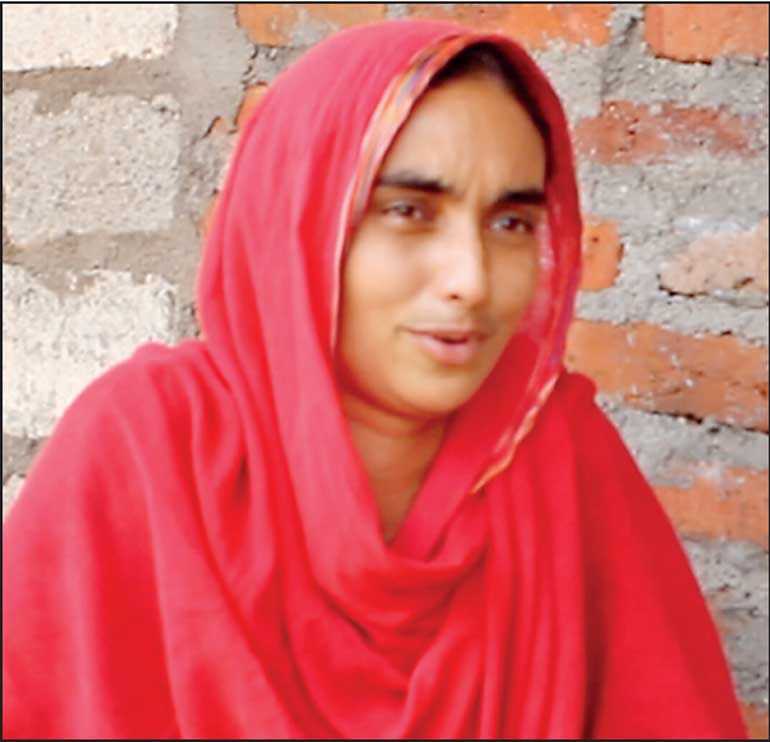

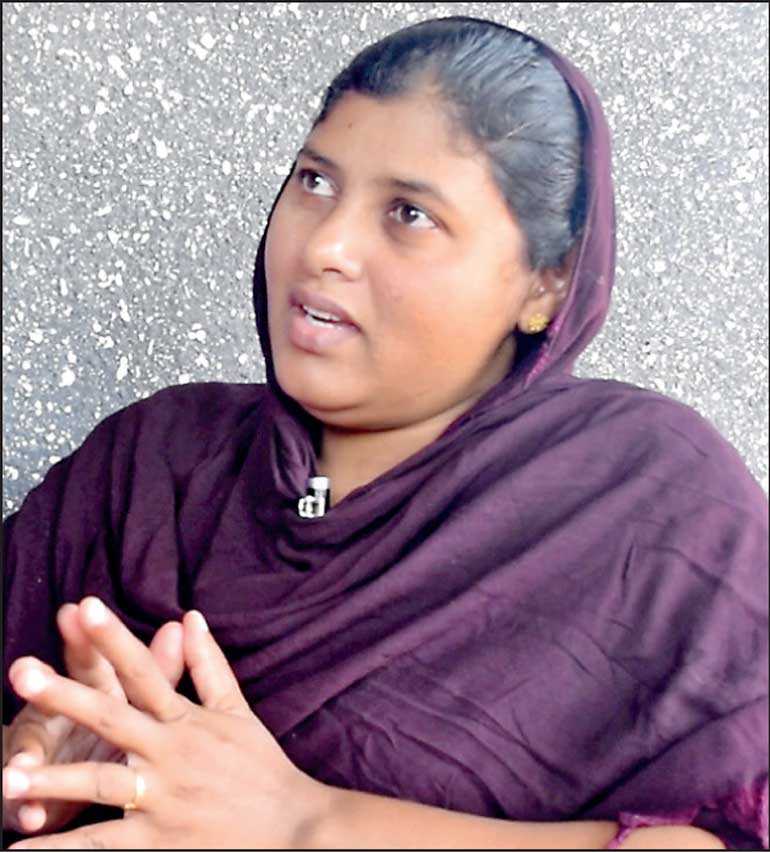
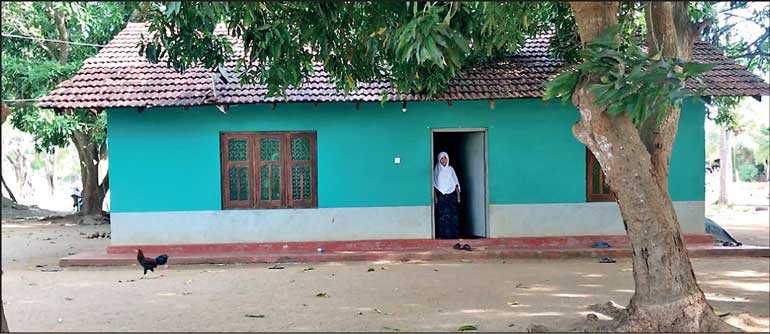
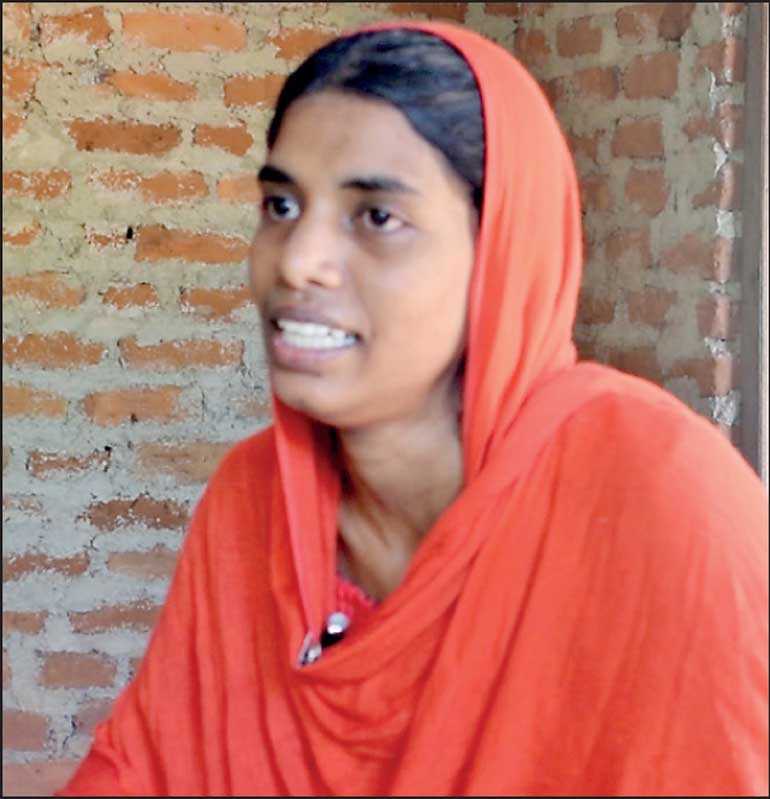
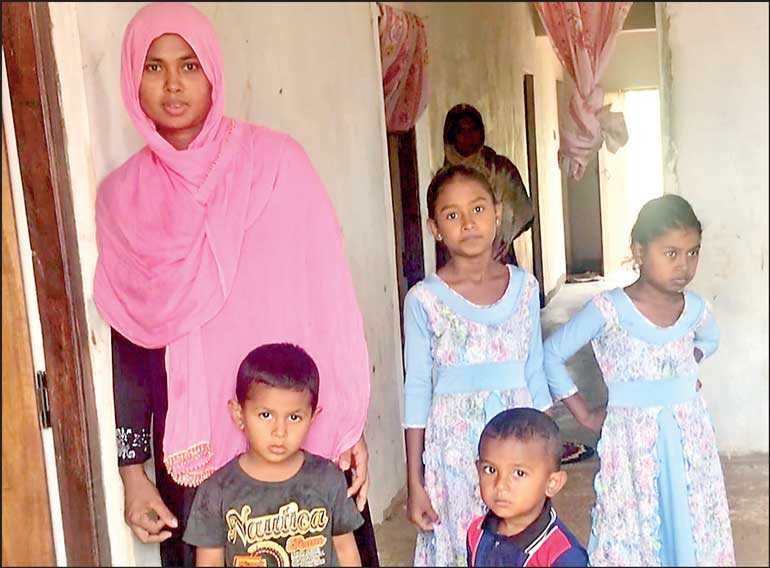
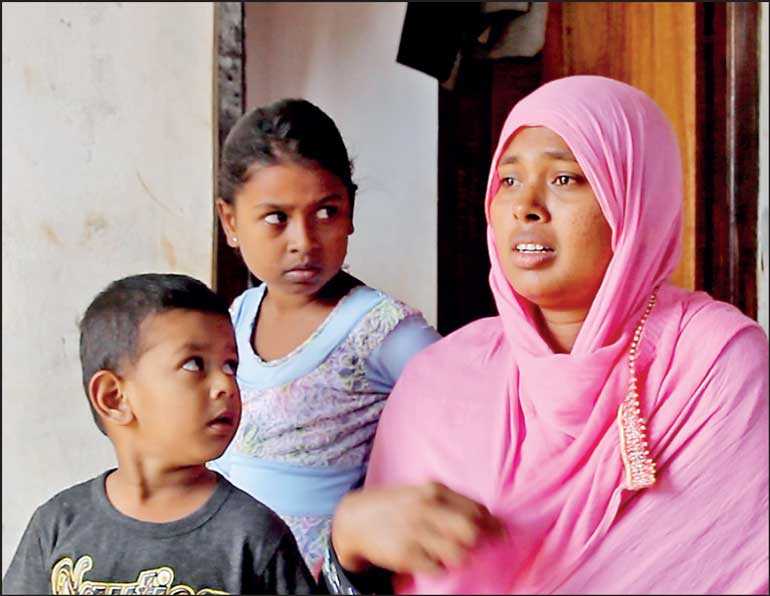
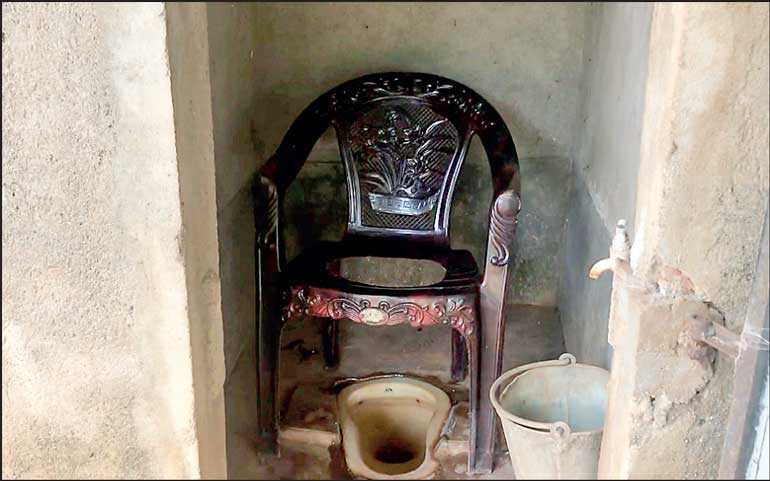
Text and Pix by Nirasha Piyawadani
The Horowpathana Police arrested five residents on suspicion on 24 August on charges of spreading fanaticism and extremism. On 25 May, a leading national newspaper in Sri Lanka published a story about the matter, even before the release of the B report of the case, stating that the five arrested suspects had Rs. 100 billion in their bank accounts.
The family members of the five suspects said although they have not yet been charged by the legal department regarding the allegation of bank balances that amounted to Rs. 100 billion, they have been subjected to much social embarrassment and mental distress due to this false news. They revealed that they are helpless because of the inadequate information provided to the Sinhala media due to the language problem.
Credibility of the news
The main issue that arises is how the journalists came to the conclusion that the suspects arrested had Rs. 100 billion in their accounts even before the release of the B report of the case.
Was the information obtained from reliable sources, and did they take necessary action to verify the accuracy of the information before publishing it? What credible evidence did they have to label the suspects as those in Zahran’s gang before the final verdict? How was information on the five suspects released to the media before they were produced in courts? Was there a formal investigation prior to releasing information to the Police? These are the issues that arise when reviewing this article.
Information revealed by law enforcement reports
In relation to the five suspects, the Terrorism Investigation Report and the B report issued by the Kebithigollewa Magistrate’s Court have been released on 27 May. There is no mention of Rs. 100 billion in any of the records of the five suspects’ bank accounts.
Statement by the OIC, Horowpathana Police
The Horowpathana Police Station OIC Roshan Sanjeewa said neither he nor his Police officers had told the media that the accounts of the five suspects had cash amounting to Rs. 100 billion. He said that they too had to face problems due to this false allegation.
Statement of the OIC, Kebithigollewa Police
The family members of the five arrested revealed that all the suspects had been summoned by the Kebithigollewa Police before they were arrested. The Kebithigollewa Police OIC said he had not received any information to the effect that the suspects were involved in Zahran’s group, nor did they have any information about their bank account details.
He said they were summoned based on information received about the spreading of extremist Islamic ideas. He added that the investigations carried out by the Kebithigollewa Police had to be stopped as they had been arrested by the Horowpathana Police.
Social background of the arrested
The suspects arrested are from the Ellawawa village in the Kebithigollawa Police division. They are: Nhuge Zakaria, Senul Abdil Irfan, Lebbe Thambi Jasmine, Senul Abdin Khalifatullah and Mohideen Bawa Naufer from Kiwulekada village in the Horowpathana Police division.
Fatima Shahida, wife of Senul Abdil Irfan, said her husband, also accused of having Rs. 100 billion in his bank account, does not even have a bank account under his name.
“We don’t have bank accounts. We don’t even have a place to live. We live a miserable life. So how do those journalists accuse us of having Rs. 100 billion in a bank account?” Shahida asked.
Irfan, a Moulavi, has no home of his own and lives with his wife and child in a small house with five other relatives. Irfan’s father said his son had to walk two kilometres daily to teach at the mosque. After their arrest, some of his relatives including some villagers have started calling them ‘IS family’ and he tearfully asked, “If we had Rs. 100 billion, why do we have to live such a miserable life?”
Another arrested, Jasmine, a father of two, was a teacher. His wife is also a teacher and they lived in a half-built house. Jasmine had recently met with an accident and is suffering from severe physical injury. His wife said Jasmine has not been charged by the Police or any other legal entity on the allegation of possessing illicit money.
Mohideen Bawa Naufer, a graduate and father of four, was a Development Officer in the Horowpathana village. His wife is a teacher in a Government school. On the day of their arrest Police had searched their house and seized his bank book and passport. His wife doubted that there was a political motivation behind the arrest.
She said the house they lived in was built with a loan from Amana Bank and added that the loan had to be repaid in a few years. “Our bank accounts would reveal that only our salaries are credited monthly to our accounts. If we had Rs. 100 billion as the newspaper says, why should we suffer being burdened with so much debt?” she asked.
Noufer was a well-respected member of the staff as well as among the villagers, and his family members say the allegations against him by the newspaper has tarnished his reputation in the village and among the staff. At the same time, his family revealed that the long-standing Sinhala-Muslim relationship in the village had collapsed and had caused much trauma to his family.
Nohur Zakariya, arrested in the village of Ellawewa, a moulavi and a father of three, engaged in maize cultivation. “It was only after this incident that we heard of a person named Zahran. My husband is the breadwinner of the family. Without him we cannot survive. We now live with the help of our relatives and neighbours.” his wife said.
Statement in the newspaper that made the false news
We contacted the Editor-in-Chief of the newspaper and the two journalists who reported the story to find out whether they had verified its accuracy through credible sources before publishing the news. The Chief Editor said there was no time for such verification and that he was deeply saddened by the revelation later that it was false news. Although he agreed to carry a correction, explaining the truth, the News Editor of the newspaper opposed the idea, saying, “It is common to make mistakes in newspapers. Can we correct every false news?”
The editorial journalist who reported the story said he was not under any obligation to provide any explanation to our inquiries as to whether the news was correct or not and said that the Rs. 100 billion bank account information of the suspects had not been received via the Horowpathana Police Station. We then contacted the local reporter who reported the news. He said that although he was not allowed to study any legal investigations or bank account details of the five suspects, the information was received by the Police and he reported the same since it was a credible source.
Who gave the photographs to the newspaper?
Despite the fact that the final verdict of the five suspects had not yet been finalised and even before the release of the B report of the case, their photographs were published with headlines exposing them as members of the Zahran gang. In this backdrop, were the reporters aware of publishing pictures under such a headline? Who gave them the pictures?
The regional correspondent revealed that a senior Police officer had given him the photos. However, Horowpathana Police OIC Roshan Sanjeewa denied that he gave the photographs of the suspects to the media. The pictures clearly show that all five suspects were facing the camera for the picture and the background of all five pictures are the same. That means the pictures have been taken in one place with or without their consent.
Information revealed through legal reports about accusation of financial fraud
The accusation of financial fraud of the suspects has been mentioned in the B report of the case. It was based on the Rs. 2.5 million financial aid for the construction of a religious place. All five suspects have been charged with the same amount of money, but it has not yet been proved that the money was in their bank accounts.
According to bank reports, only Lebbe Thambi Jasmine has received Rs. 2.5 million during the time period January to October 2013. It has been credited from time to time in 19 instalments. Mohammed Saheem Nasoordeen, a resident of Kawdana Road, Dehiwala has said that he gave the money to Jasmine to construct a nursery school in Kebithigollewa in remembrance of his father. Jasmine, a close friend of Nasoordeen, had coordinated the project.
How did the five arrested suspects become a target?
Ibrahim Abdul Halik, the moulavi at the Takwa Mosque in Ellaweva, revealed some interesting facts. For some time there had been a personal dispute between the arrested suspects and a few villagers due to minor differences in the Islamic religious ideologies and beliefs practised by these two groups. A group of people who are currently in custody had filed a case in the Magistrate’s Court to find a solution to this controversy.
The final court ruling was that the two groups could no longer attend the same mosque because of ideological conflicts and that their own separate religious places should be built in the village. Following the order, the clergy and villagers revealed that there was another mosque in addition to the traditional Islamic mosque, which created a rift between the two groups.
With the Easter attack on 21 April, the country was littered with fears of terrorism and controversial news about religious ideology. The family members of the five detainees believe the arrests were made using the incident as a weapon of personal resentment by the traditional Islamist group providing false information to the Police.
Primary sources of information
To compile this investigative report, information and clarifications were received from the following parties: The relevant newspaper’s Editor-in-Chief, journalist, regional reporter, OIC of Kebithigollewa Police Station, Jagath Abeysiriwardena, the Deputy Superintendent of Police in charge at the time of the incident of the North Western Province, family members of the arrested suspects, villagers, the lawyer representing the defendant, Case B report and reports issued by the Terrorism Investigation Division.
Translation support: Shabeer Mohammed